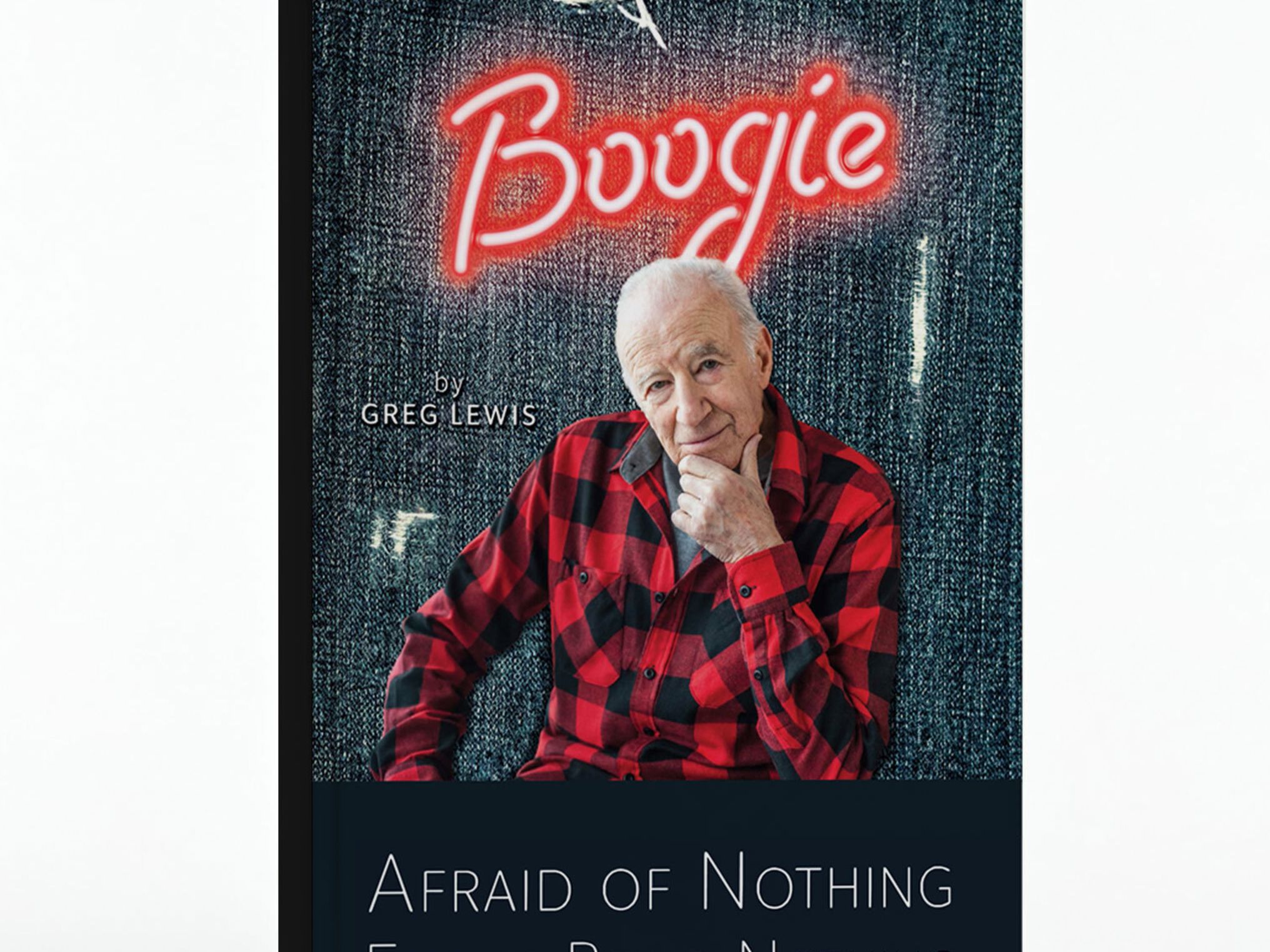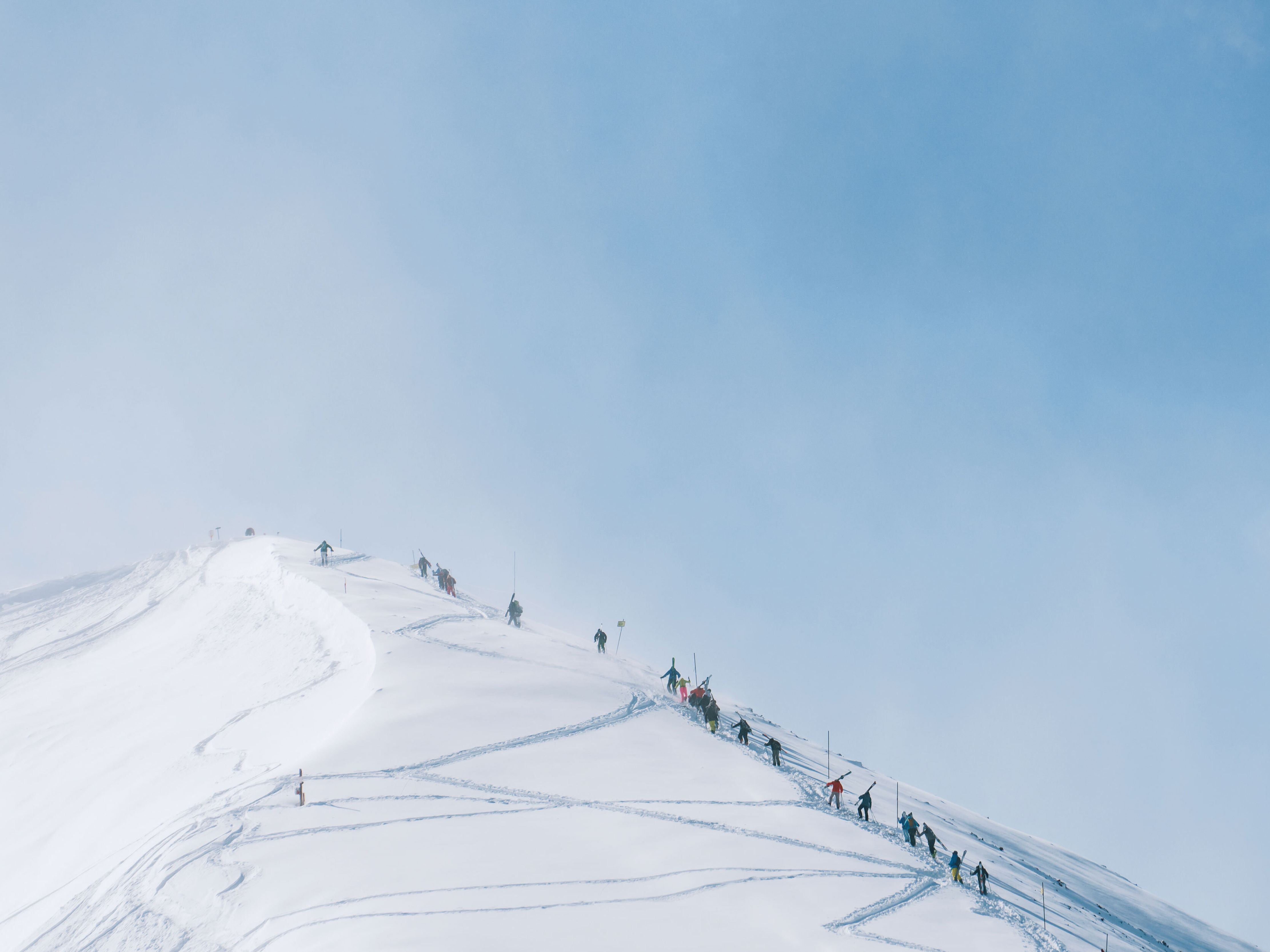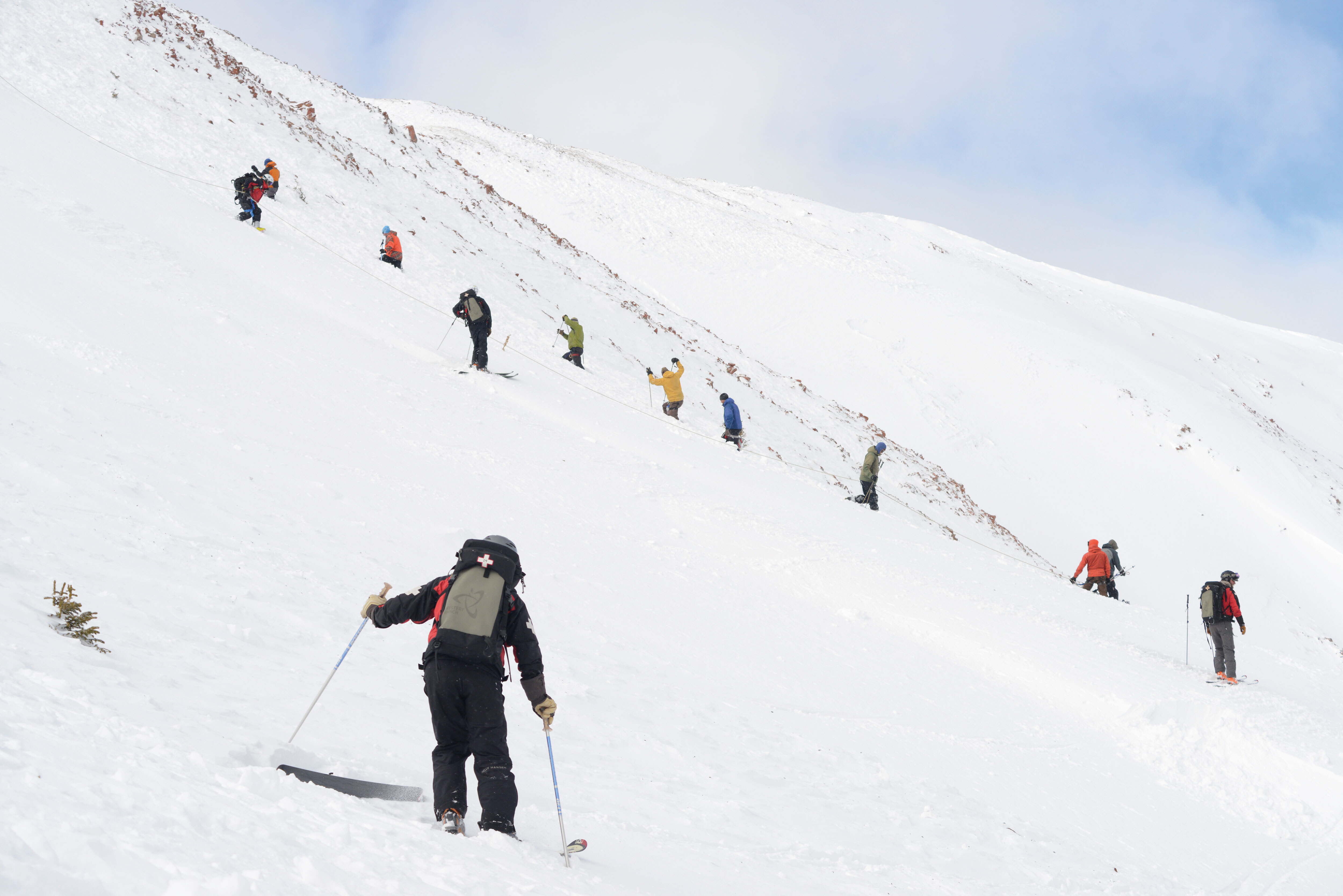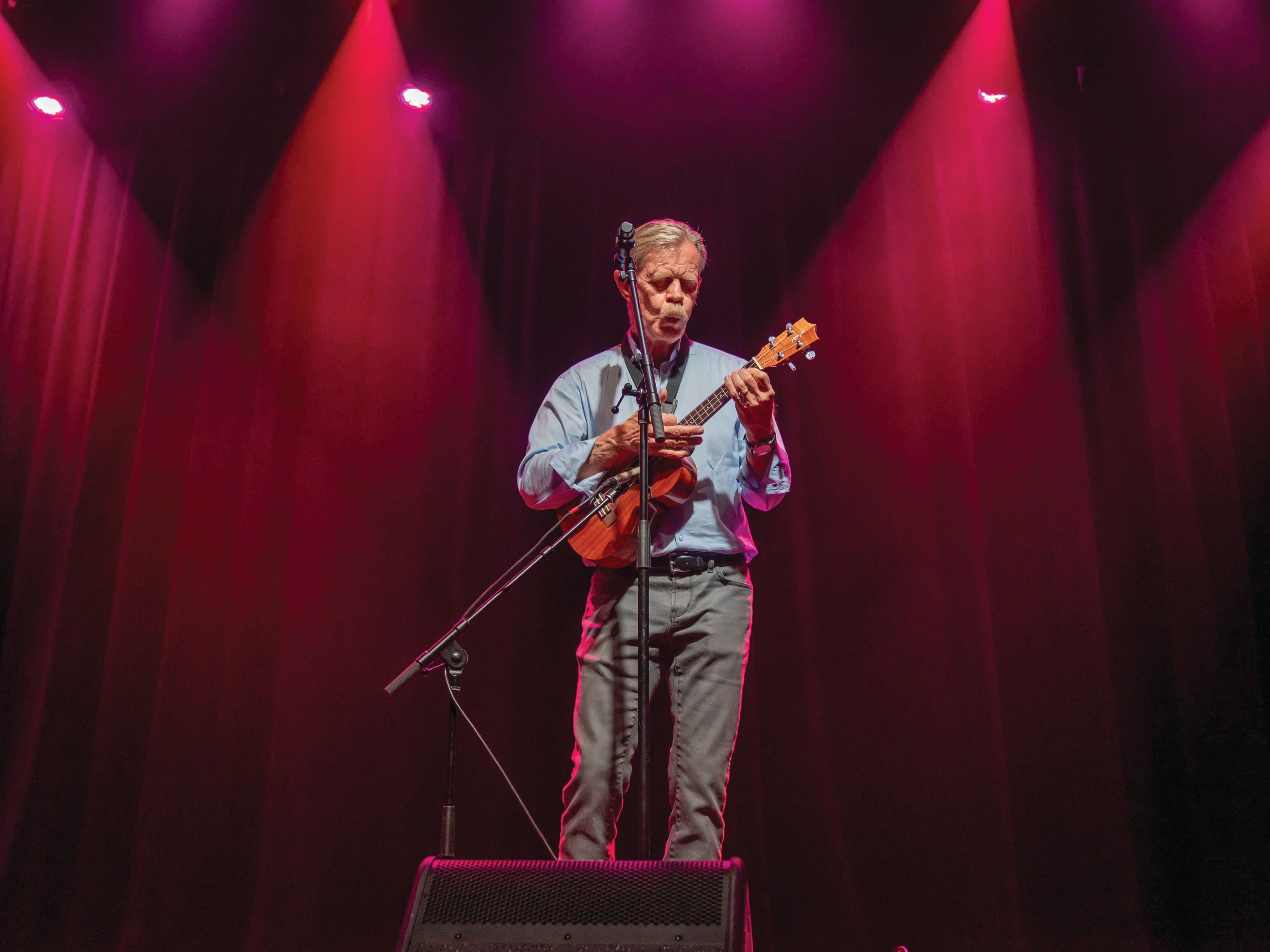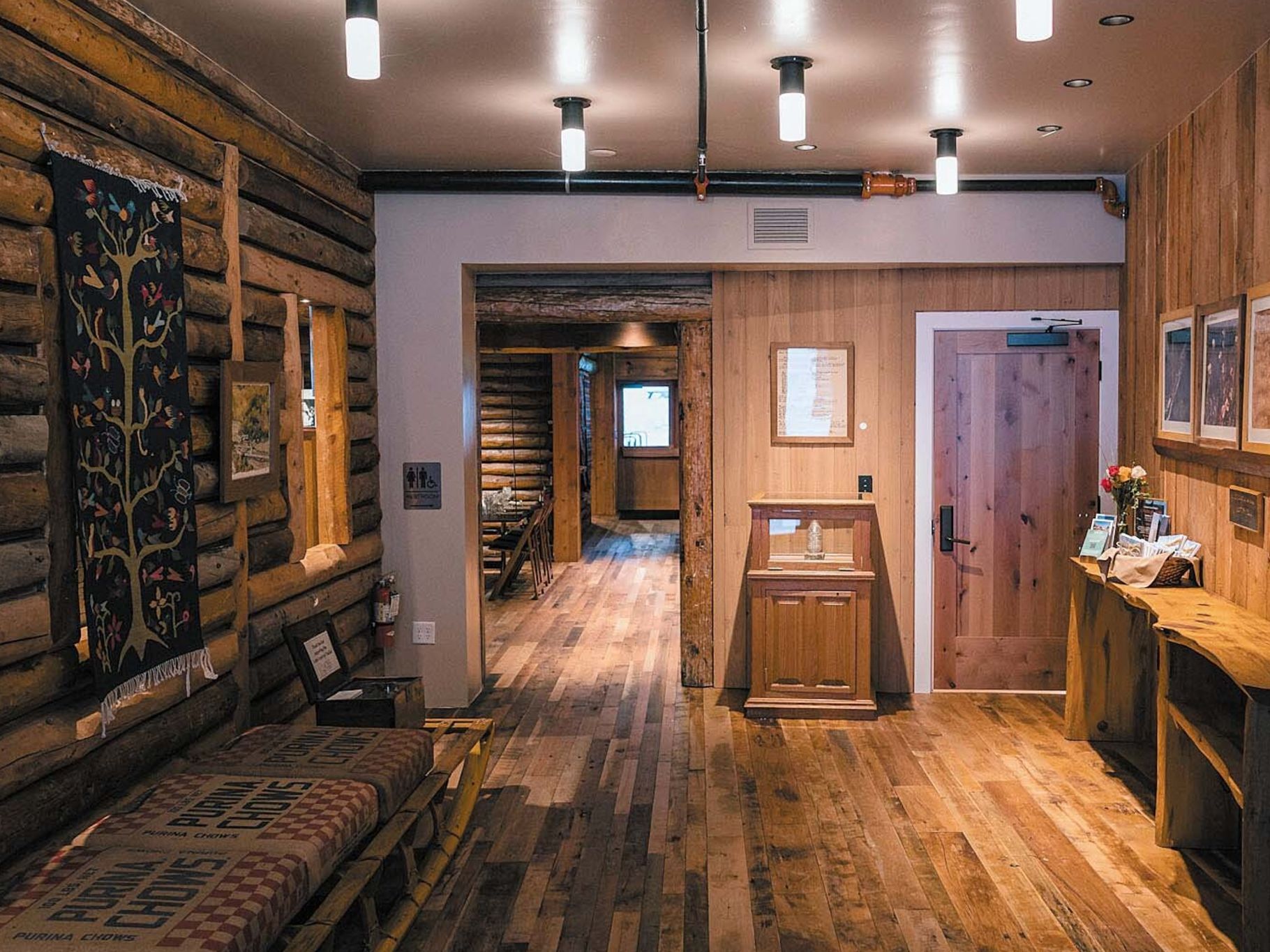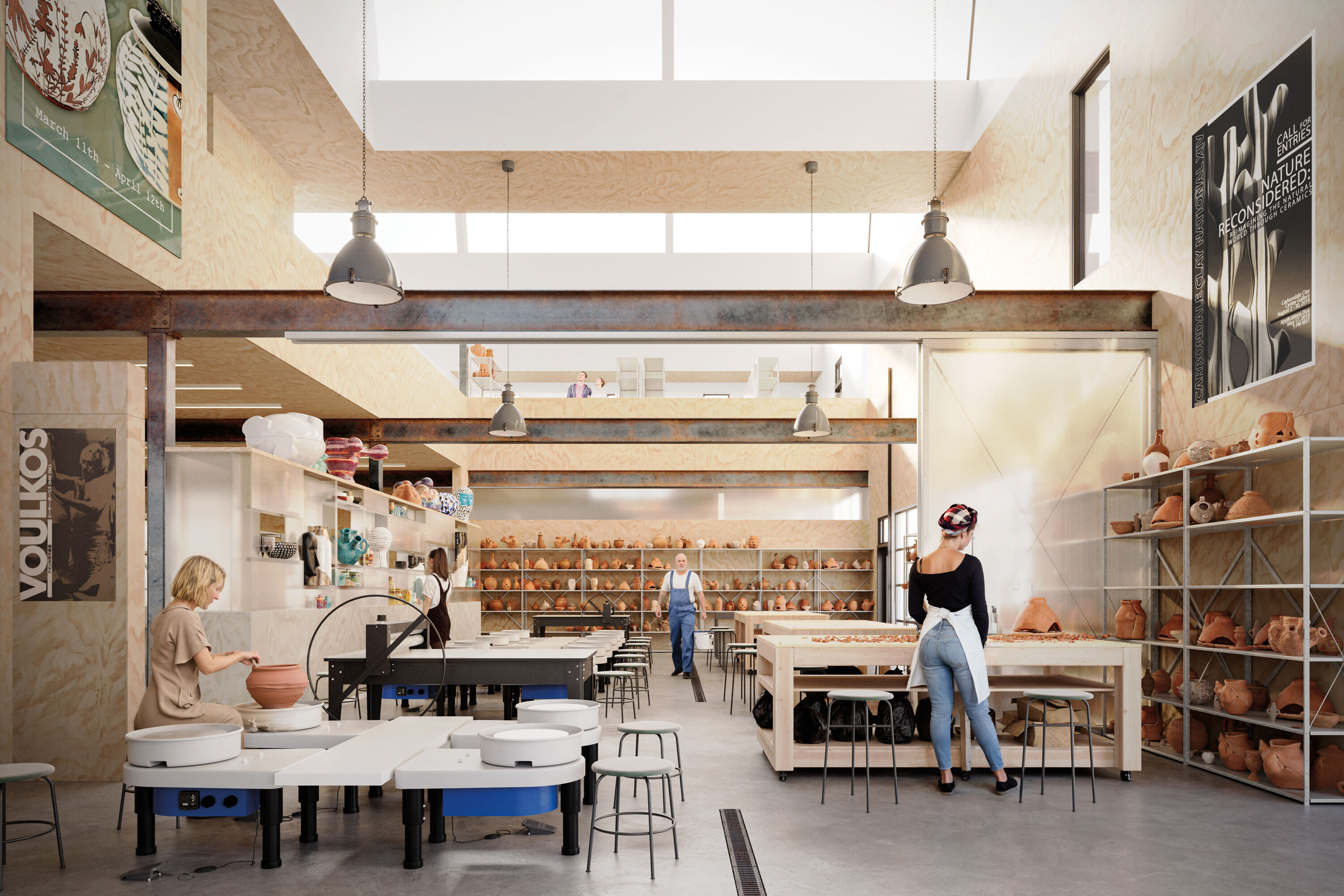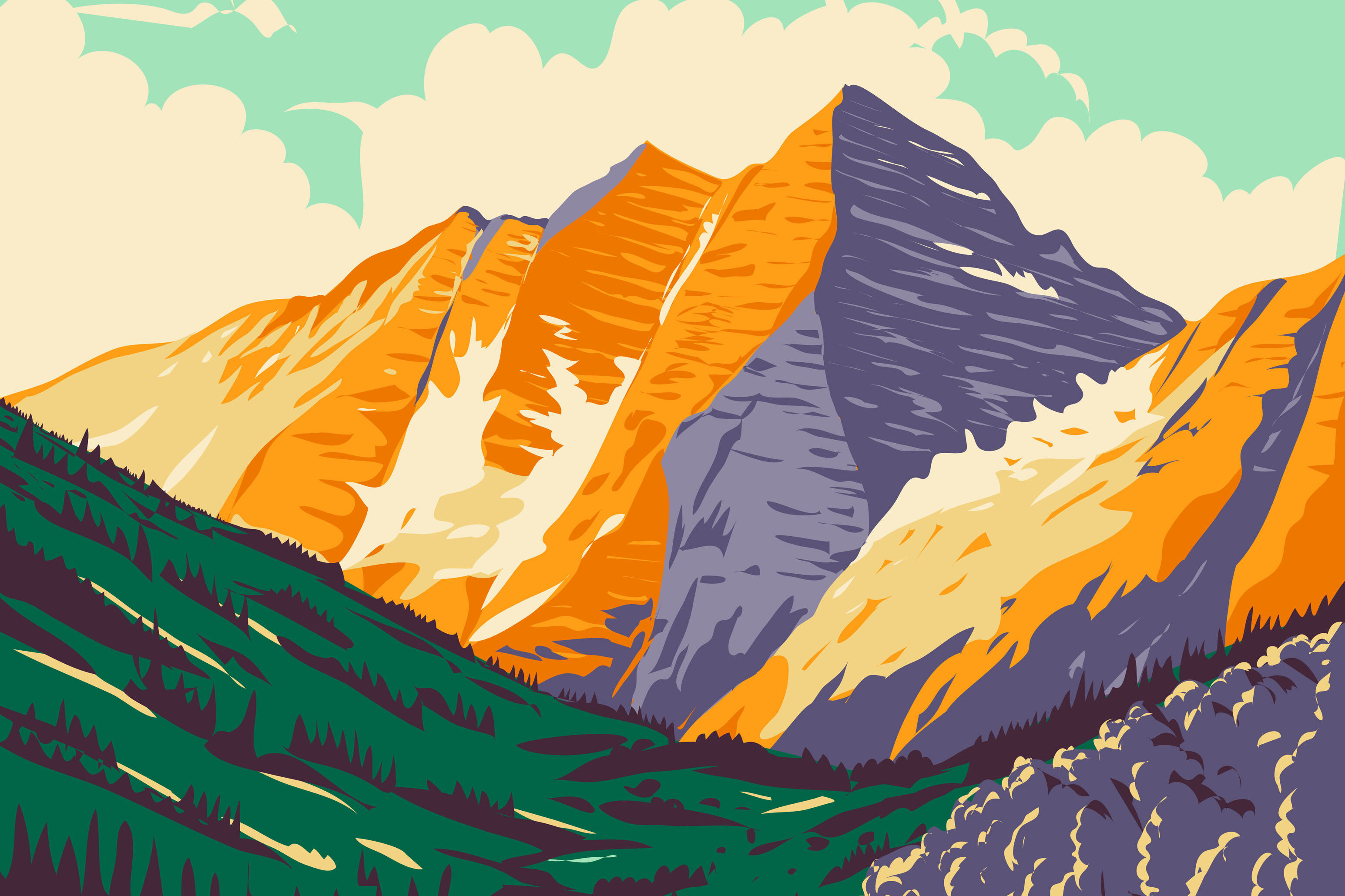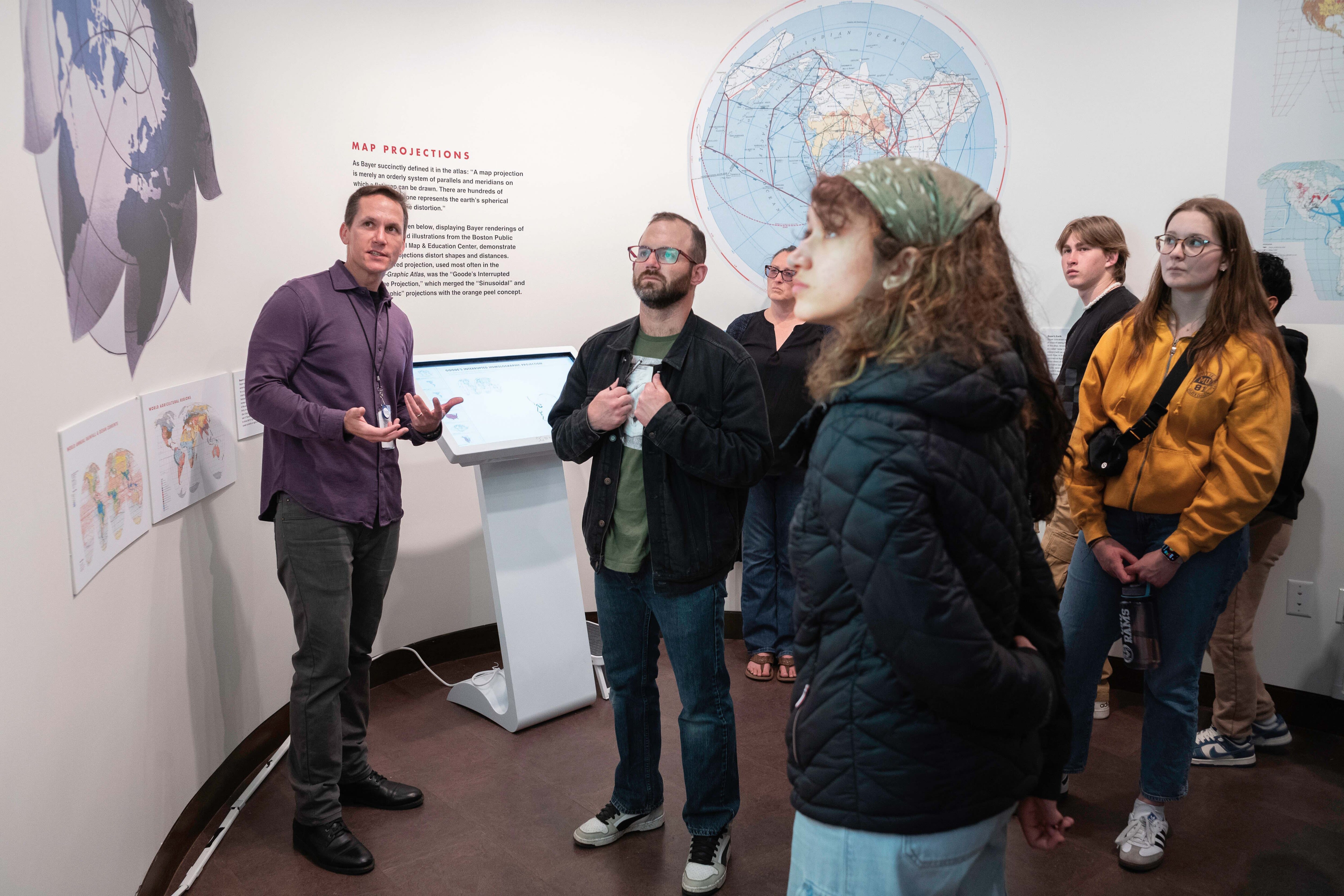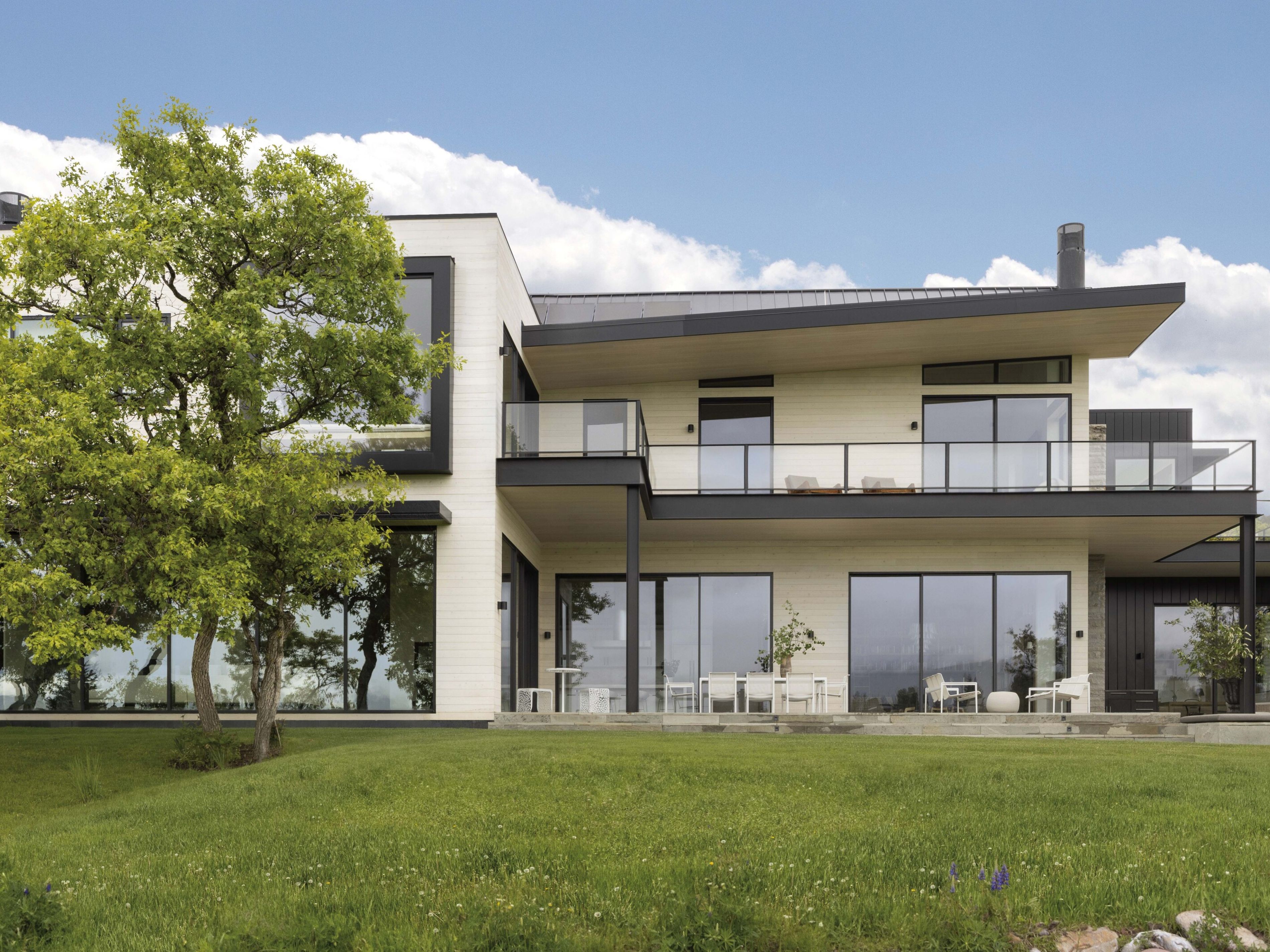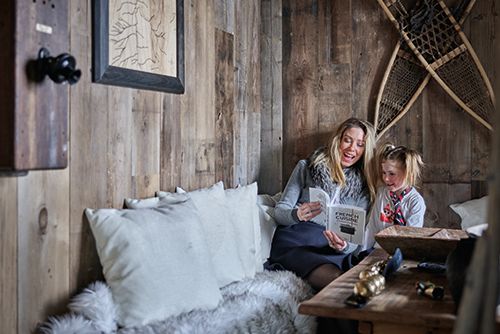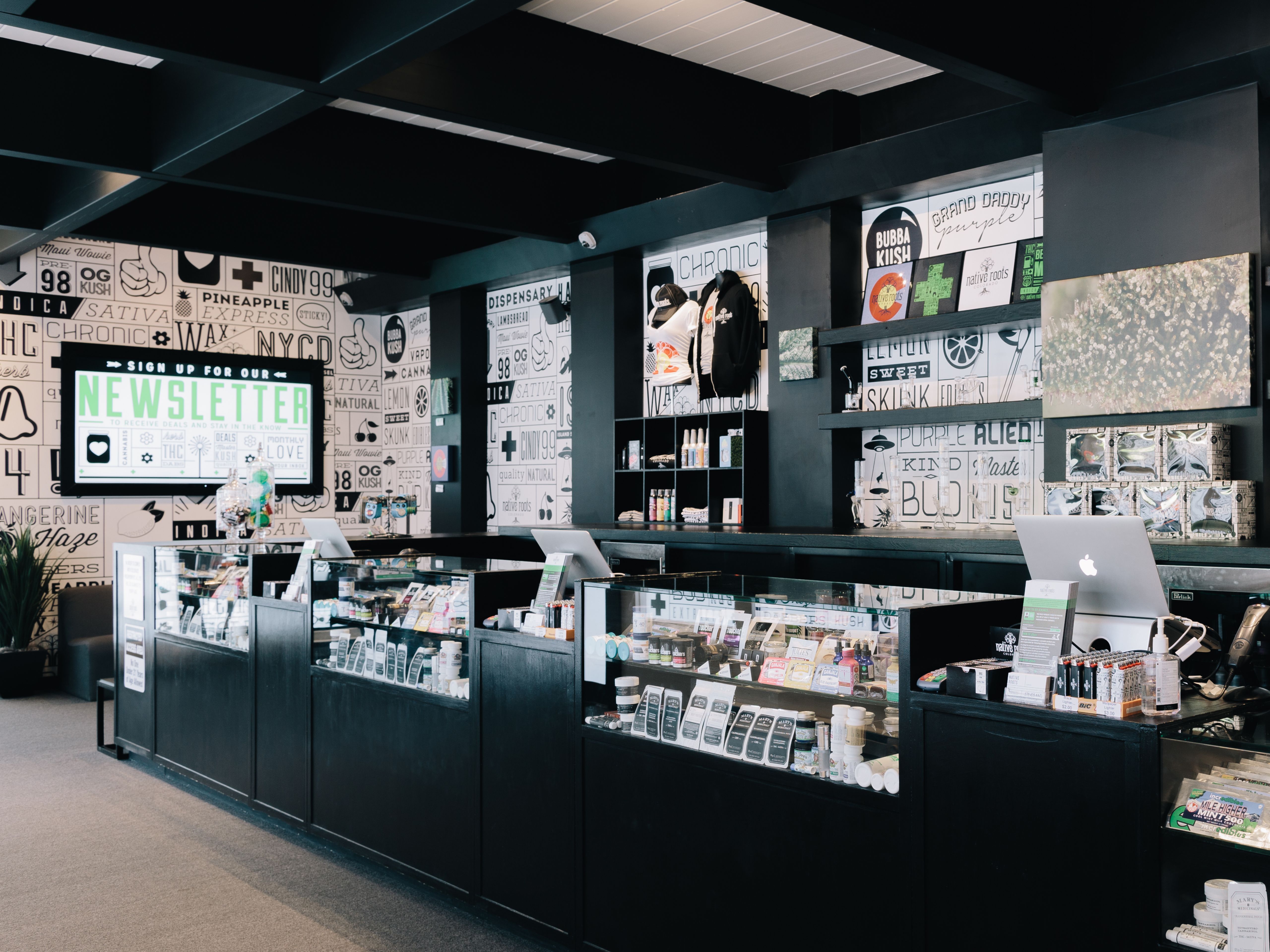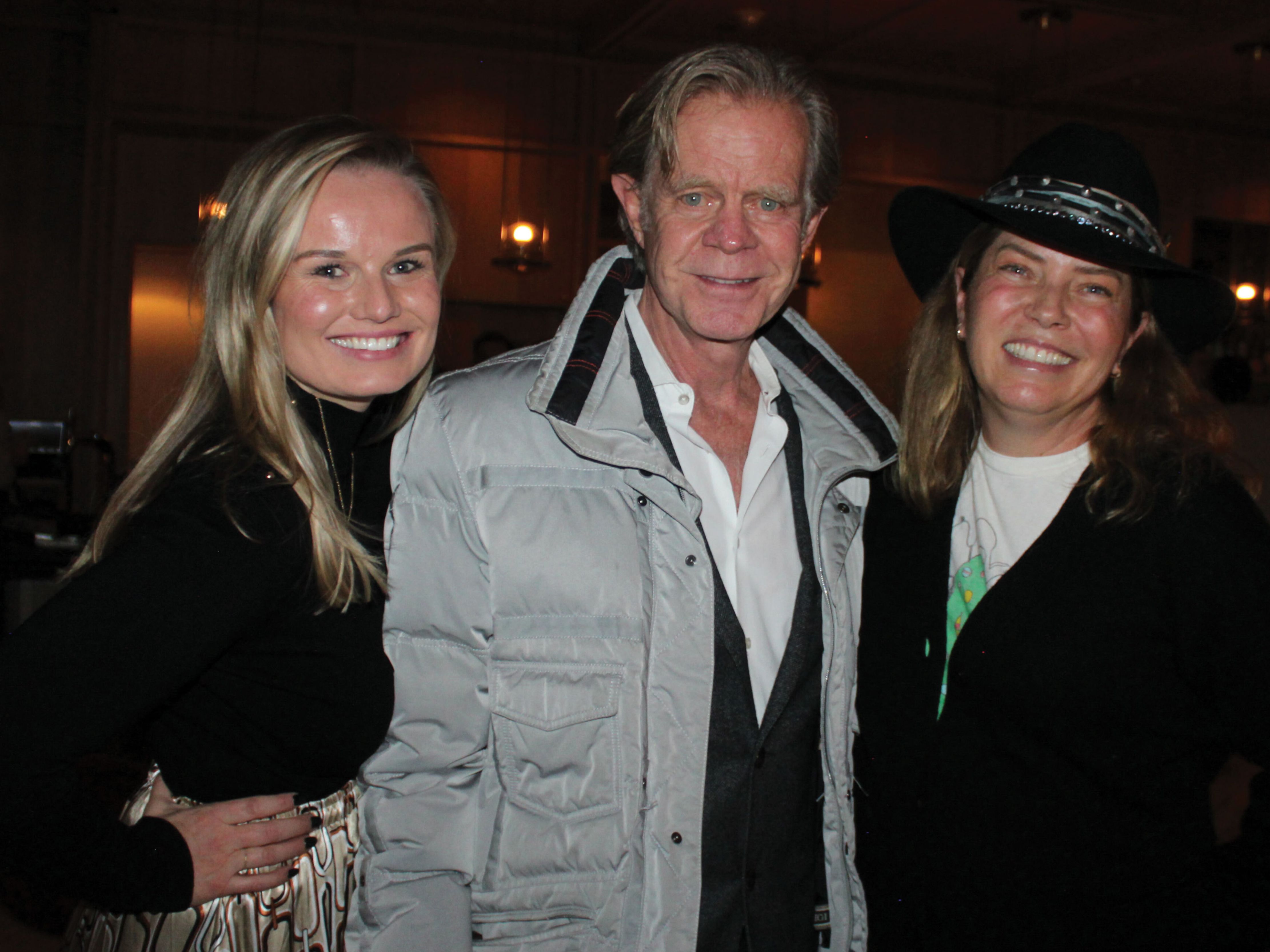Chip Giller's Beacon in the Smog Is Brighter Than Ever
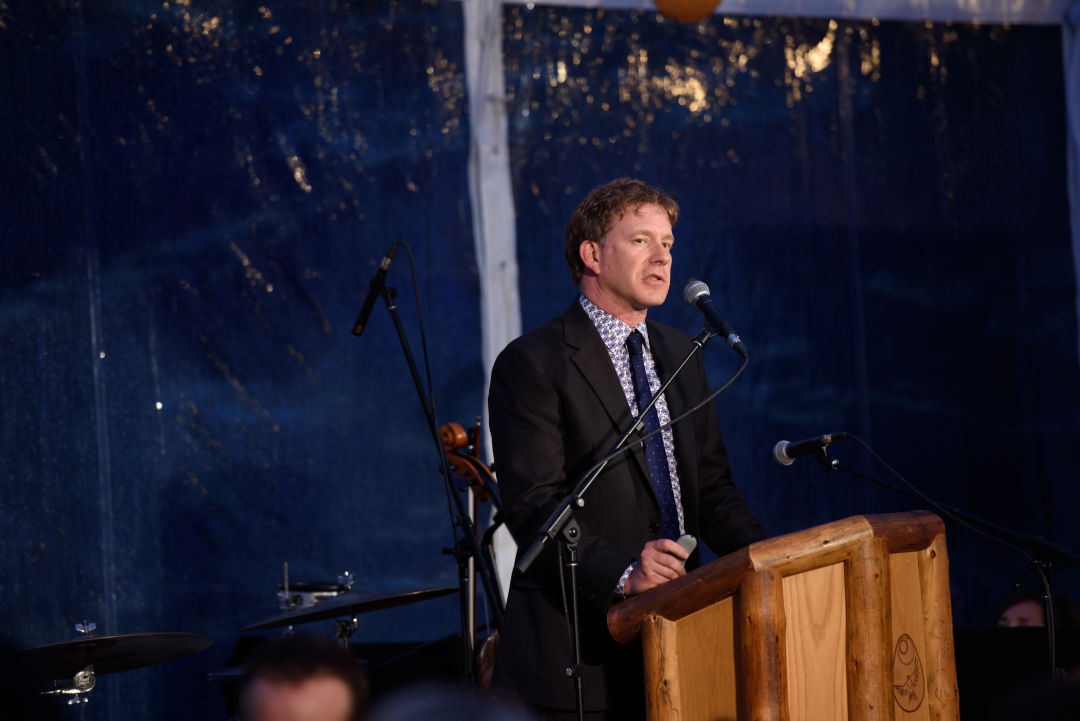
Honoree and keynote speaker Chip Giller at Aspen Center for Environmental Studies' annual Evening on the Lake.
Image: Mary Sue Bonetti
Following another picture perfect Evening on the Lake—Aspen Center for Environmental Studies’ annual fundraising gala—Chip Giller has added his latest award to a long list of accolades like the Heinz Award for media innovation and “Hero of the Environment” from Time Magazine.
As the founder of the game-changing, online-only outlet Grist, the pioneer of green journalism was named ACES 2017 Honoree at its Hallam Lake home on July 13, where he also gave a keynote address to a sold-out tent of the beloved organization’s steadfast supporters.
ACES Chief Executive Officer Chris R. Lane says of the poignant pick, “As you can imagine, with the federal direction on climate change, tax on the media, and the way the news is moving around the world today, honoring a guy like Chip just made sense for us this year. He continues to shed light on the issues affecting our environment on a national and global scale—increasingly more important than ever before.”
Away from his home base on Vashon Island, outside of Seattle, we sat down with Giller at the Limelight Hotel ahead of his acceptance of the ACES honor for an inspiring conversation that left us feeling the most hopeful yet since November.
Aspen Sojourner: You got your start in journalism not far from here at High Country News?
Chip Giller: It was my first journalism job out of school [at Brown University] and it was an incredible experience. I began as an intern and over the course of that year, I was exposed to Western environmental issues, conservation issues, and water issues. I was the editor of my high school paper, a reporter at my college paper, and majored in environmental studies, but this introduced me to what journalism could really do.
AS: How did your experience at HCN shape your career path?
CG: It introduced me to a whole new swath of environmental issues particular to the West. I grew up on the East Coast [in Lexington, Massachusetts], so being in Paonia ultimately led to my living in the western half of the United States … the wilderness and the wildness is so much more vivid and exciting out here. Professionally, it’s a paper that punches above its weight class. The editor and publisher at the time, Ed and Betsy Marston, had such incredible standards and I learned so much working for them.
AS: Like Grist, it’s a non-profit media outlet.
CG: HCN pioneered a business model for media that more and more outlets—even those for-profit—are realizing works. Having a core community of readers whom you are specifically writing toward and producing content for, increases the financial support from that community we rely on. I don’t know if HCN sees itself as an innovator in that way, but they certainly have been.
AS: And Grist certainly writes for a core community.
CG: We reach three million readers a month and the goal from the beginning was to awaken a new generation to kind of give a shit … to care about environmental issues and then to spur them to act. The big green groups in our country have often suffered from an aging problem, so when I started Grist in 1999—I was in my 20s at the time—I was trying to inspire a new generation of folks.
AS: How did you even attempt to tackle that back then?
CG: Well, we had three goals from the start: To be exclusively online, which in 1999 was a peculiar decision; To pair irreverent humor with serious subject matter; To be nonprofit. A lot of people in the media world questioned us, but the reason we’ve succeeded, endured, and grown has been our passion, persistence, and innovation. We’re still here, and for the long term, because these issues merit it.
AS: I read a Poynter profile from 2015 where you said, “I think it’s a glorious era to do journalism.” Does that statement still hold true?
CG: Well, it’s a pretty intense time, because we in the media are public enemy number one for this administration. But in a sort of counter intuitive way, I am going to argue that it is a glorious time to be in media. As a consequence of media being targeted by this administration, a number of outlets are recognizing the true watchdog responsibility they have. There was a bit of complacency across the board and now, there’s like a real revival. We’re seeing record traffic to platforms of every size, more readers responding, and favorability increase, so that’s a pretty fascinating thing. As a result of being targeted, I think media may grow stronger.
AS: What about the attack on climate change?
CG: It's complex because change never really begins in [Washington] D.C., so it doesn’t need to end in D.C. The attacks on climate science are causing other leaders to step up and more forthrightly own this mantle of change—so whether it’s governors, mayors, or business leaders—we’re already seeing a different type of momentum that might otherwise not have been there. I don’t want to sound too cheerful about it because ultimately, we need federal leadership and the reality is that we weren’t getting there as quickly as we need to regardless. This is the optimistic take, but there’s a different level of attention and energy fighting back that might actually help advance us more quickly.
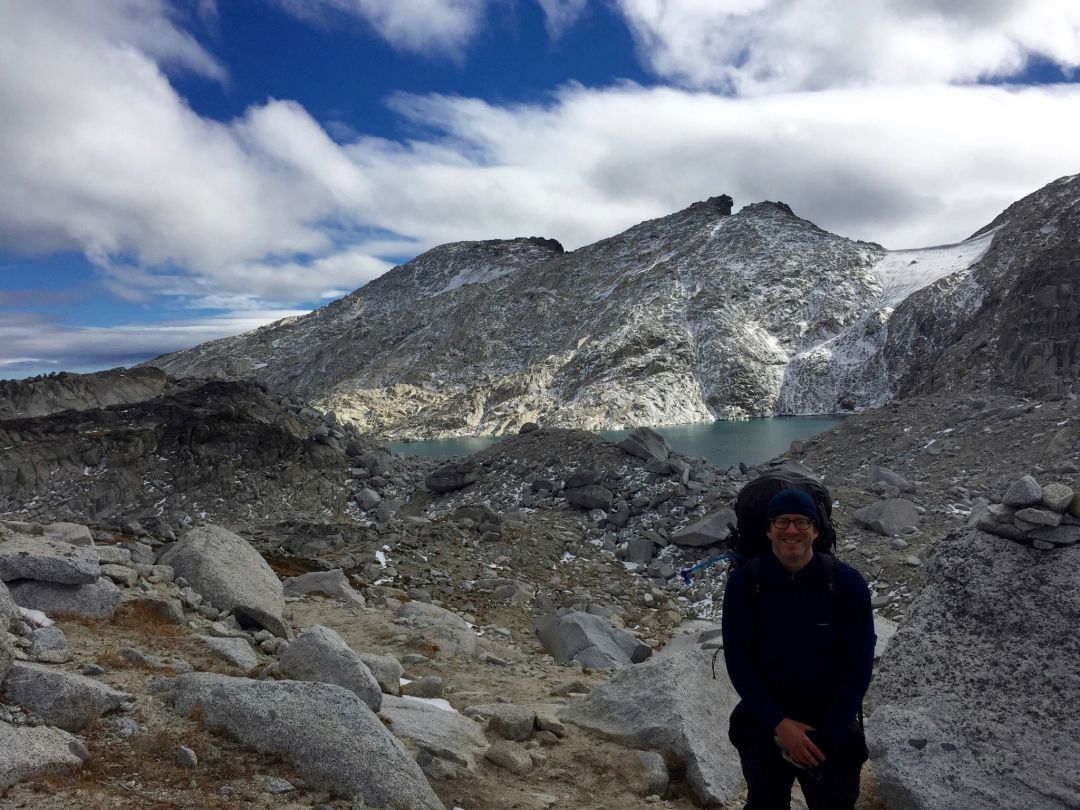
Giller on a five day solo hike in the Enchantments in Washington in 2016—his first and only sabbatical since starting Grist in 1999.
Image: Courtesy: Chip Giller
AS: How does Grist continue to fight the good fight?
CG: I tend to think about things over this 20 year trajectory—and actually my whole life—I’ve had an obsessions around journalism and the environment. [Renowned environmentalist] Bill McKibben was one of my early babysitters, so I’ve just been immersed in this stuff since I was five and if you look at the big picture, we're undergoing a substantial cultural shift in awareness at a pretty promising pace. Approximately 70% of Americans now believe climate change is happening—that’s a belief that’s changed significantly in the last two decades. But what people are less aware of are the solutions to address these problems, which is what we’re focusing a lot of our storytelling efforts on.
AS: Speaking of a shift, how alarmed should we be about the recent news of the iceberg breaking off in Antarctica?
CG: Not to diminish what happened yesterday, but there's a lot of scientific thought that that particular sheet was going to break off naturally. Now it’s hard to determine what is natural now in the world, but the climate attribution to that event is not as strong as what’s it’s causing elsewhere in that ice sheet complex. Sea levels are not going to rise substantially. But when I something like this happens, on one hand I’ll admit, this shit is actually going down and it’s fucked up. Then I’ll have to pull myself back. Having worked on these issues for so long, I think about the choice between despair and hope. I always choose informed hope.
AS: What’s next for Grist?
CG: The discussion is at a very different point from when I started the site. The need when I began was to really raise the alarm around problems and now the need is to shine a light on the solutions. I’m working on developing a second program for our platform that is a network of change makers with established and emerging leaders—to help spur unlikely and effective collaborations. Solutions now are very siloed and we need to connect everyone across every issue.
AS: So, is it safe to say Grist’s tagline, “a beacon in the smog,” is brighter than ever?
CG: First, I just really loved the expression of “grist for the mill” ... meaning fodder to discuss … things to chew over. At the start our tagline was “gloom and doom with a sense of humor” and we soon changed it to “a beacon in the smog,” which still endures. Grist cuts through the noise and pollution to point to what matters and now, as we focus more on solutions for a future that doesn’t suck, our beacon is casting a light onto what is possible.

